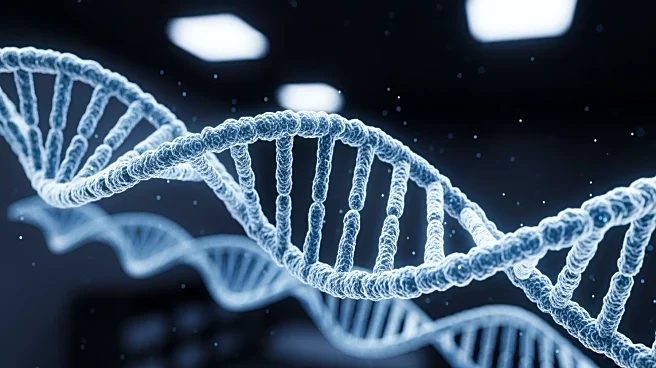What's Happening?
A new British documentary titled 'Hitler's DNA: Blueprint of a Dictator' claims to reveal medical facts about Adolf Hitler through DNA analysis. The documentary suggests that Hitler suffered from Kallmann syndrome, a rare genetic disorder affecting hormone
production and physical development. Additionally, the DNA analysis indicates a high risk of mental health issues such as ADHD, autism, and schizophrenia. The documentary uses historical records and expert opinions to support these claims, although the scientific community remains skeptical about linking behavior solely to genetic findings.
Why It's Important?
The documentary's findings could influence historical perspectives on Hitler, potentially reshaping discussions about the role of genetics in behavior. It raises ethical concerns about stigmatizing mental health conditions by associating them with notorious figures. The analysis also challenges persistent rumors about Hitler's ancestry, providing evidence of his Austrian-German roots. This exploration of genetic predispositions in historical figures may impact future studies in genetics and psychology, highlighting the complexity of diagnosing mental illness based solely on DNA.
What's Next?
The documentary is set for release later this month, which may spark debates among historians, geneticists, and psychologists. The findings could lead to further research into the genetic factors influencing behavior, although experts caution against oversimplifying the relationship between genetics and actions. The documentary's release may also prompt discussions about the ethical implications of genetic testing and its role in understanding historical figures.
Beyond the Headlines
The documentary touches on the irony of Hitler's own Nazi laws, which would have deemed him 'hereditarily diseased' under his racial doctrine. This aspect highlights the contradictions within Nazi ideology and the dangers of using genetic purity as a basis for discrimination. The documentary also raises questions about the reliability of DNA evidence, given the challenges in verifying the authenticity of the samples used.















